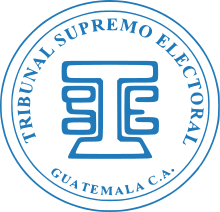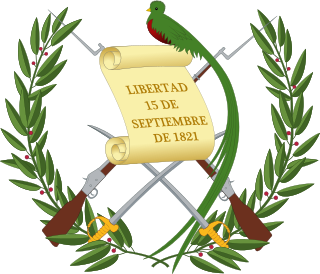
Politics of Guatemala takes place in a framework of a presidential representative democratic republic, where by the President of Guatemala is both head of state, head of government, and of a multi-party system. Executive power is exercised by the government. Legislative power is vested in both the government and the Congress of the Republic. The judiciary is independent of the executive and the legislature. Guatemala is a Constitutional Republic.
The Republic of South Africa is a unitary parliamentary democratic republic. The President of South Africa serves both as head of state and as head of government. The President is elected by the National Assembly and must retain the confidence of the Assembly in order to remain in office. South Africans also elect provincial legislatures which govern each of the country's nine provinces.

Venezuela is a federal presidential republic. The chief executive is the President of Venezuela who is both head of state and head of government. Executive power is exercised by the President. Legislative power is vested in the National Assembly of Venezuela. Supreme judicial power is exercised by the Supreme Tribunal of Justice.

The National Electoral Council (CNE) is one of the five branches of government of the Bolivarian Republic of Venezuela that was designed to be independent. It is the institution that has the responsibility of overseeing and guaranteeing the transparency of all elections and referendums in Venezuela at the local, regional, and national levels. The creation of the CNE was ratified in Venezuela's 1999 constitutional referendum. Following the election of Nicolás Maduro – Hugo Chávez's handpicked successor – into the presidency, the CNE has been described as being pro-Maduro.

The Congress of the Republic of Colombia is the name given to Colombia's bicameral national legislature.

The Constitution of the Bolivarian Republic of Venezuela is the current and twenty-sixth constitution of Venezuela. It was drafted in mid-1999 by a constituent assembly that had been created by popular referendum. Adopted in December 1999, it replaced the 1961 Constitution, the longest-serving in Venezuelan history. It was primarily promoted by then President of Venezuela Hugo Chávez and thereafter received strong backing from diverse sectors, including figures involved in promulgating the 1961 constitution such as Luis Miquilena and Carlos Andrés Pérez. Chávez and his followers (chavistas) refer to the 1999 document as the "Constitución Bolivariana" because they assert that it is ideologically descended from the thinking and political philosophy of Simón Bolívar and Bolivarianism. Since the creation of the Constituent National Assembly in August 2017, the Bolivarian government has declared the 1999 constitution suspended until a new constitution is created.

In most legal jurisdictions, a supreme court, also known as a court of last resort, apex court, and highcourt of appeal, is the highest court within the hierarchy of courts. Broadly speaking, the decisions of a supreme court are not subject to further review by any other court. Supreme courts typically function primarily as appellate courts, hearing appeals from decisions of lower trial courts, or from intermediate-level appellate courts.
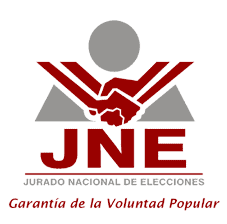
The National Jury of Elections of is an autonomous constitutional organ, headquartered in Lima, which serves as Peru's electoral court. Its goal is to oversee the legality of electoral processes, guaranteeing the respect for the population's will. Thus, it is the entity in charge of proclaiming the official electoral results and awarding recognitions or credentials to the elected authorities. Furthermore, it passes resolutions to regulate the electoral dispositions.
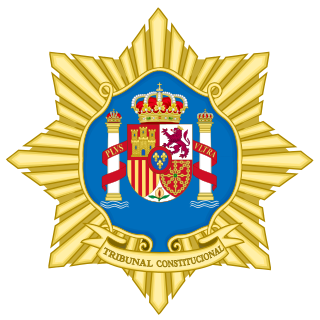
The Constitutional Court is the supreme interpreter of the Spanish Constitution, with the power to determine the constitutionality of acts and statutes made by any public body, central, regional, or local in Spain. It is defined in Part IX of the Constitution of Spain, and further governed by Organic Laws 2/1979, 8/1984, 4/1985, 6/1988, 7/1999 and 1/2000. The court is the "supreme interpreter" of the Constitution, but since the court is not a part of the Spanish Judiciary, the Supreme Court is the highest court for all judicial matters.

The Constitution of Guatemala is the supreme law of the Republic of Guatemala. It sets the bases for the organization of Guatemalan government and it outlines the three main branches of Guatemalan government: executive branch, legislative branch, and judicial branch.
The Constitution of the Philippines is the constitution or the supreme law of the Republic of the Philippines. Its final draft was completed by the Constitutional Commission on October 12, 1986, and ratified by a nationwide plebiscite on February 2, 1987.
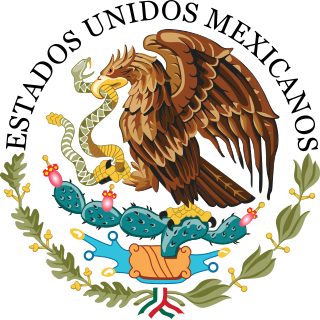
The federal government of Mexico is the national government of the United Mexican States, the central government established by its constitution to share sovereignty over the republic with the governments of the 31 individual Mexican states, and to represent such governments before international bodies such as the United Nations. The Mexican federal government has three branches: executive, legislative, and judicial and functions per the Constitution of the United Mexican States, as enacted in 1917, and as amended. The executive power is exercised by the executive branch, which is headed by the president and his Cabinet, which, together, are independent of the legislature. Legislative power is vested upon the Congress of the Union, a bicameral legislature comprising the Senate and the Chamber of Deputies. Judicial power is exercised by the judiciary, consisting of the Supreme Court of Justice of the Nation, the Council of the Federal Judiciary, and the collegiate, unitary, and district courts.

The Judiciary of Brazil is the group of public entities designated by the Brazilian constitution to carry out the country's judicial functions.
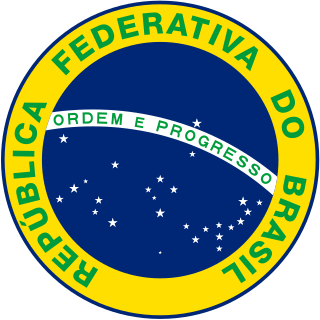
The Federal Government of Brazil is the national government of the Federative Republic of Brazil, a republic in South America divided into 26 states and a federal district. The Brazilian federal government is divided into three branches: the executive, which is headed by the President and the cabinet; the legislative, whose powers are vested by the Constitution in the National Congress; and the judiciary, whose powers are vested in nine organs, including the Supreme Federal Court and lower federal courts. The seat of the federal government is located in Brasília.

The Constitution of Costa Rica is the supreme law of Costa Rica. At the end of the 1948 Costa Rican Civil War, José Figueres Ferrer oversaw the Costa Rican Constitutional Assembly, which drafted the document. It was approved on 1949 November 7. Several older constitutions had been in effect starting from 1812, with the most recent former constitution ratified in 1871. The Costa Rican Constitution is remarkable in that in its Article 12 abolished the Costa Rican military, making it the second nation after Japan to do so by law. Another unusual clause is an amendment asserting the right to live in a healthy natural environment.

Movimiento Semilla is a centre-left political party in Guatemala.
The Statute Governing the Transition to Democracy to Re-establish the Validity of the Constitution of the Bolivarian Republic of Venezuela is a statute adopted by the Venezuelan National Assembly that defines the "duration of a transition government and its political and economic responsibilities". Approved on 5 February 2019, through its seven chapters and thirty-nine articles, the Transition Statute "governs the installation of a provisional Government and the convocation of free elections", and "establishes the election of new rectors of the National Electoral Council, new magistrates of the Supreme Tribunal of Justice and new representatives of the Citizen Power." It also establishes that – in the absence of a constitutionally elected president – the National Assembly President is the Acting President of Venezuela.
The Judiciary of Mexico officially the Judicial Power of the Federation is one of the three branches of government in Mexico, and the sole federal judiciary power. It is composed of the Supreme Court of Justice of the Nation, which serves as its highest court, the Federal Judiciary Council, the Federal Electoral Tribunal, regional courts, circuit and appellate collegiate courts, and district courts.

General elections were held in Guatemala on 25 June 2023 to elect the president and vice president, all 160 seats in Congress, all 20 members of the Central American Parliament, and mayors and councils for all the country's 340 municipalities. Incumbent president Alejandro Giammattei was constitutionally prohibited from running for a second four-year term. However, as no presidential candidate obtained over 50 percent of the vote in the first round on 25 June 2023, a second round was held between the top two finishers on 20 August 2023: Congressman Bernardo Arévalo of the Movimiento Semilla and Sandra Torres, a former first lady representing the National Unity of Hope (UNE) party. Arévalo defeated Torres in the second round with nearly 61 percent of the vote in what was seen as a landslide.
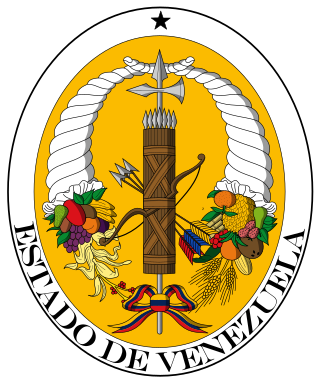
The Constitution of Venezuela of 1830 was the fourth Magna Carta in force in Venezuela from 1830 to 1857, being the second most valid Venezuelan fundamental law. Approved by the Constituent Congress of Valencia, on September 22, 1830 and promulgated by General José Antonio Páez two days later. The Constituent Congress of 1830 that sanctioned it had begun its sessions in the city of Valencia on May 6, 1830, with the attendance of 33 deputies of the 48 that had been elected in representation of the provinces of Cumaná, Barcelona, Margarita, Caracas, Carabobo, Coro, Mérida, Barinas, Apure, Barquisimeto, Guayana and Maracaibo. In March 1857 this text was repealed when the Constitution of 1857 was approved and promulgated.
